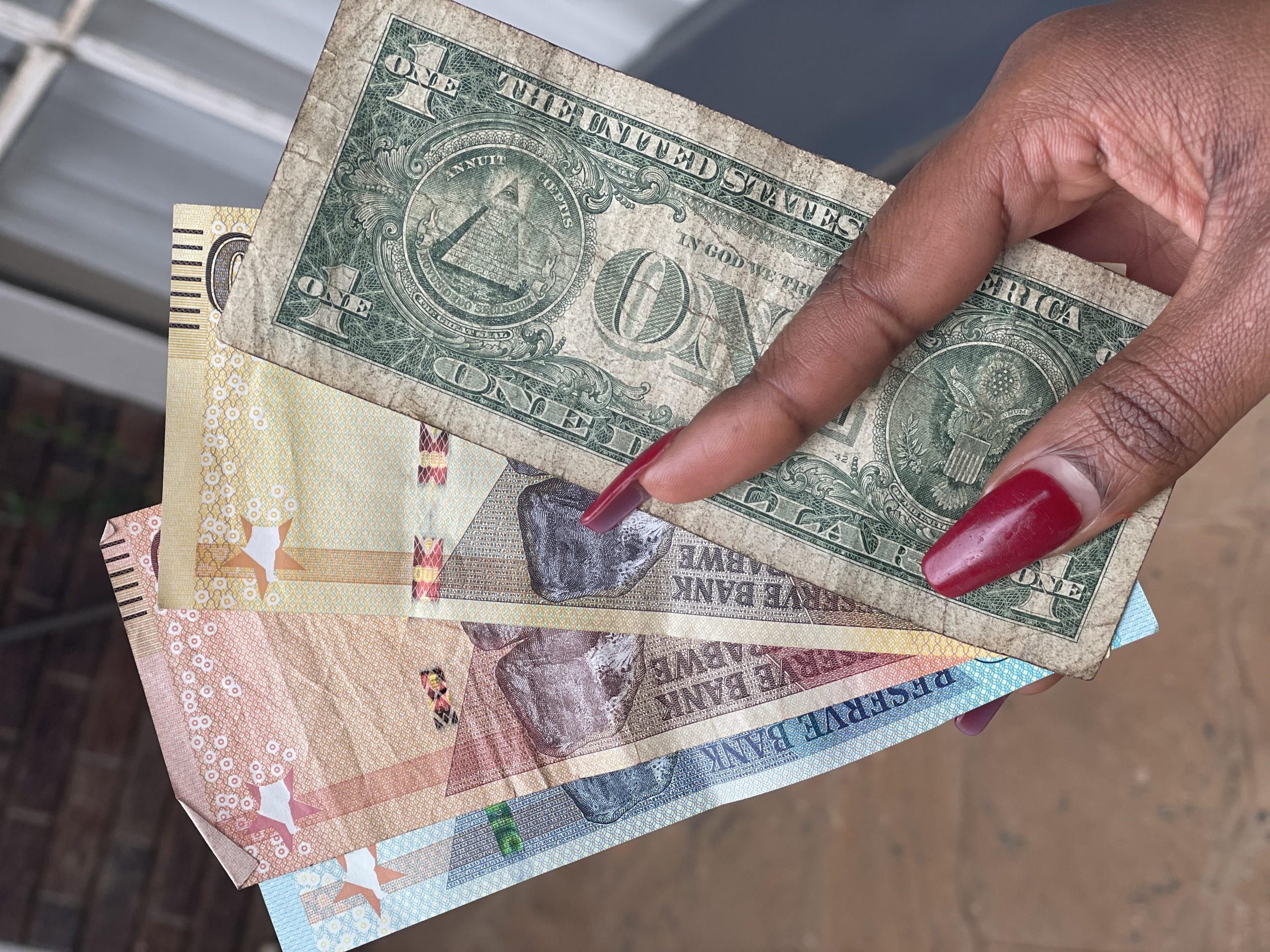By Newton Mambande
With the rise of inflation and the cost of living, the government has implemented a number of economic plans to stabilize the Zimbabwean dollar (ZWL). However, the depreciating currency value is persisting, as evidently indicated by the slowing economy.
At the time of writing, the ZWL currency was being traded at a black market rate of 3,200.00 and the Reserve Bank of Zimbabwe (RBZ) rate of 1,404.8039 against US$1.00.
The Finance and Economic Development Ministry and the Treasury have responded to inflation by exempting ten essentials from import duty and value-added tax (VAT) starting May 12, 2023. The imports of basics, which are now exempt from taxes, include maize, rice, wheat, cooking oil, bathing soap, toothpaste and washing powder. George Guvamatanga, the Treasury Secretary, recommended that the Ministry of Industry and Commerce introduce a statutory instrument (SI)—the Open General Import Licence—allowing duty-free imports. This measure was introduced to stabilize inflation and arrest skyrocketing prices.
This economic plan by the fiscal and monetary authorities is exposing to the public food security and nutrition policy planners and decision makers that they are cooking books reporting that there are bumper harvests of maize during the 2022/23 season and a good record of wheat production in the 2022 winter season. So, if the country has been and is still expecting bumper harvests, what and why are they liberalising food markets? If there is a good cereal crop harvest, the government must adopt an import substitution system by levying a 10 percent import tax on food imports and other essentials. By making imports expensive, it will result in increased productivity in the economy, leading to stability of the currency and inflation, as it was tactfully applied by the British in the imperial or international sterling zone at the time of the Great Depression in the 1930s.
In the case of Zimbabwe, Mthuli supposedly must heavily subsidize energy, oil, and gas imports. To add on that, the government must not misrepresent facts and figures if they are serious about dealing with inflation. That is, the government must tell the world the truth about the food security situation in order to stabilize inflation and the economy.
I feel mercy not to hammer Dr John Mangudya, but in reality, his concept of financial economics is outdated. This is shown by the introduction of gold backed currency in June 2022 through Mosia Tunya gold coins and electronic gold-backed currency, or e-gold coins, on May 8th, 2023.
The idea of gold-backed currency was borrowed from the Breton Woods System, influenced by the British-born and American economist, John Maynard Keynes, in the year 1944 in the United States of America. The Breton Woods System temporarily stabilized inflation and currency during the postwar years from the mid-1940s to the early 1960s. By then, the US controlled 75 percent of gold reserves in the world economy, making the dollar the strongest currency convertible to gold. However, the Keynesian monetary system of gold-backed US$ was dumped on August 15, 1972, when President Richard Nixon dumbed down gold-backed currency and replaced it with fiat currency, where trading parties would put trust in the US$, which was not convertible to gold. Nixon’s decision to devalue the US dollar was driven by ensuing gold shortages and inflation, which were caused by the rise of competitive European and Japanese exports, increased foreign aid and military spending, and international currency speculators. The Union of Soviet Socialist Republics (USSR, now Russian Federation) and South Africa were failing to honour their promise to supply gold to the US federal monetary reserve system. Such economic conditions left Nixon without an option, with the exception of devaluation of the currency, to defend US economic hegemony against traditional global calamities.
It is, therefore, arguable that the idea of e-gold tokens is inapplicable because it failed in the past and that is why the Bank of England, the Bank of France, and the US Federal Reserve entirely abandoned the gold-backed currency system between 1960 and 1972.
Aside from this, there is a lack of trust in the Zimbabwean currency system. The bank accounts of individuals and corporate companies were invaded twice, in October 2008 and October 2018, and the accounts were wiped out. This might have adversely affected investor confidence in the financial markets.
Further, the country purchased 35tonnes of gold worth US$2.5 billion in 2022. From the looks of things, Zimbabwe had insufficient gold, and nobody knows whether gold was exported or not.
Against this background, the e-gold tokens are doomed to fail at the beginning.
The government is still insisting on the Foreign Exchange Auction System instead of liberalisation of financial markets. Thus, the government must replace the controlled interbank market rate by allowing market forces to determine rates of currency exchange.
Sadly, the issues of overspending and unauthorized spending of monetary resources amount to US$9.7 billion in November 2020 and US$200 million in June 2020, as shown by Finance and Economic Development Minister, Mthuli Ncube, through the Financial Adjustments Bill. Such a culture is one of the main causes of hyperinflation in the Zimbabwean economy.
The government’s economic policy, respecting a coordinated attack on simultaneous problems of unemployment, food insecurity and malnutrition, inflation, and an unfavorable balance of payments, must be revised and modified to the tune of international development thinking rather than fighting fire with petrol as they are doing right now – Harare
Newton Mambande is reachable via the following app/call +263773411103 and e-mail newtonmunod@gmail.com


